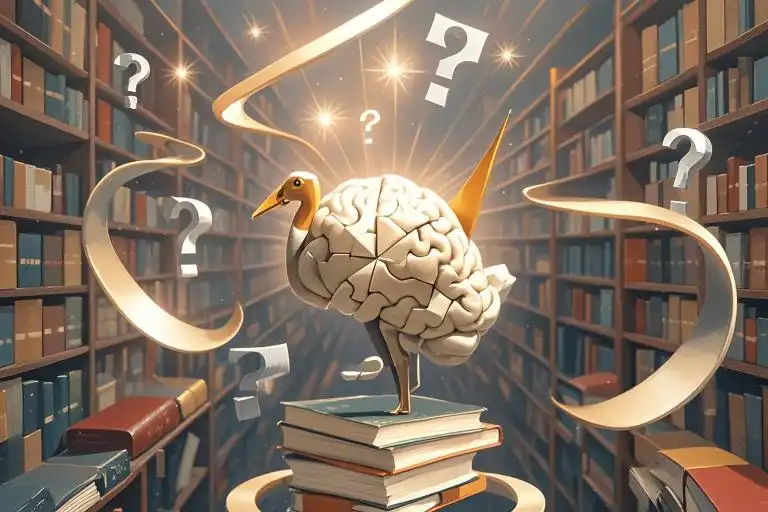You know that uneasy feeling when your phone buzzes with another “breaking news” alert, yet somehow everything still feels… rehearsed? We swim through oceans of information daily, yet the harder we try to grasp reality, the more it slips through our fingers like smoke. What if I told you the problem isn’t the world’s complexity – it’s the shortcuts our brains keep taking?
Let’s start with something you “know”: yesterday’s stock market plunge makes perfect sense now, right? Of course the tech bubble was going to burst. Obviously the Fed should’ve acted sooner. We’re all Monday-morning quarterbacks when it comes to explaining events, yet terrible at predicting them. This mental trickery even has a name – hindsight bias – and it’s just one of the mind’s sneaky ways of making us feel artificially competent.
Now imagine holding a book that gently pries open these mental trapdoors…
Everything Is Obvious by Duncan J. Watts
(Once You Know the Answer)
The Mental Trap: Our addiction to “common sense” storytelling
The Reality Check: History doesn’t follow plotlines
That colleague who swears they “saw the pandemic coming”? The politician claiming events unfolded “exactly as predicted”? Watts dismantles our compulsive need to retrofit explanations like assembling IKEA furniture from mismatched parts. Through razor-sharp examples – from failed marketing campaigns to viral trends nobody anticipated – he reveals:
“Hindsight bias is the brain’s autocomplete function gone rogue. We mistake the clean narrative we create after events for actual understanding.”
Try This Tomorrow: Next time someone says “I told you so,” ask:
- Did they actually predict it in writing beforehand?
- What contradictory predictions did they make that failed?
- What crucial factors are we still overlooking?
You’ll quickly discover most “obvious” explanations have more plot holes than a B-movie script.
Why This Mental Rewiring Matters Now
We’re living through the “Golden Age of Certainty” – a paradoxical era where having infinite information at our fingertips makes us more susceptible to intellectual laziness. Social media feeds our confirmation bias like a Pez dispenser, while news algorithms turn world events into binge-worthy drama series. The result? We become armchair experts analyzing Game of Thrones plot twists with more nuance than actual global crises.
But here’s the beautiful flip side: the moment you start doubting your “obvious” assumptions is when true discovery begins. Like realizing the Earth isn’t flat not by being told, but by noticing how ship masts disappear hull-first over the horizon.
Your Cognitive Toolkit Upgrade
Each book on this list acts like a mental Swiss Army knife:
- Jar Openers for sealed assumptions (“This is just how things work!”)
- Magnifying Glasses for overlooked details (“Wait, does that data actually prove causation?”)
- Sledgehammers for intellectual comfort zones (“Maybe my ‘gut feeling’ needs fact-checking…”)
The goal isn’t to make you distrust everything, but to replace blind certainty with curious skepticism. Think of it like learning magic tricks – once you know how the brain gets fooled, you start seeing the hidden strings everywhere.
Reading = Mental Time Travel
Consider this: when you read Seneca’s letters from 2,000 years ago, you’re not just absorbing wisdom – you’re discovering that anxiety about information overload isn’t new. The Roman philosopher complained about “distraction sickness” caused by too many scrolls. Fast-forward to today’s endless scroll… some human challenges are gloriously persistent.
The books we’ve explored don’t just challenge what you think – they change how you think. Like installing a software update for your mental operating system. Will there be glitches? Probably. Moments where you wish you could unsee certain truths? Almost certainly. But that’s how growth works – messy, uncomfortable, and absolutely worth it.
Your Next Step: Pick one book that makes you slightly nervous. That flutter of “Hmm, this might unravel things I take for granted” is your brain’s version of a muscle being stretched. And remember: the goal isn’t to have all the answers, but to fall in love with the questions.
After all, the most exciting journeys aren’t about reaching destinations – they’re about discovering better ways to travel.




